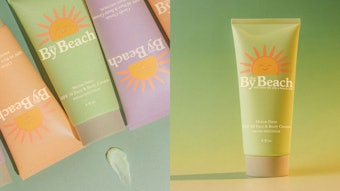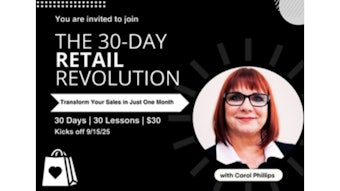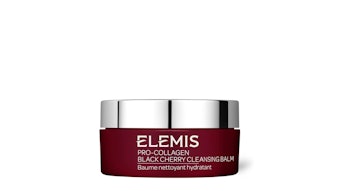Lately, the troubled U.S. economy seems to have thrown everyone into doom and gloom mode. Recent weeks have brought us the failure of countless financial institutions, a history making drop in the Dow, and a taxpayer funded $700 billion bailout bill that no one seems sure will work. Anyone with an ounce of common sense is worried, but if you own a retail business, you've probably chewed your nails to the quick. With the Commerce Department recently reporting that August consumer spending was the lowest it's been in six months—and that was before the financial crisis remember—you've caught a glimpse of the future and it doesn't seem to include many paying customers.
Stop fretting, advises international retail expert Rick Segel. It's true that you can't control Wall Street, but you have a surprising amount of influence over your own little corner of Main Street.
"Yes, our economy is going through a rough period, but that doesn't mean consumers have stopped buying," says Segel, author of the new book Retail Business Kit For Dummies, 2nd Edition (Wiley, September 2008, ISBN: 978-0-470-29330-0, $34.99). "People still need groceries. They still need to buy birthday presents for their nieces and nephews. They still like to reward themselves with new shoes or a new watch after a tough week at work. So the shoppers are out there—you just have to attract them to your store."
So, what should retail business owners do to survive and thrive in this tough economy? Segel provides some rules to live by:
Stay in tune with your clients. Now's the time to make sure you are providing your clients with exactly what they want, when they want it. Don't waste time trying to guess what your customers want; ask them. Hand out a customer survey or put a focus group together to get feedback. Let them tell you which items they'll make a sacrifice to buy even when they are cutting back on their spending. Ask them if there is anything they'd like your store to supply that you don't already, or if there is anything customer service-wise they wish you did better.
Keep an eye on your credit. If you are a small retailer, you probably use a credit line to get you through different periods, or you occasionally need a small business loan. You may believe that banks have all but shut off the credit they are willing to give to small businesses these days, but the truth is, if you have a good credit score, collateral, and income, you can still qualify. So make sure you're doing everything you can to protect your credit. Pay your bills on time, cut expenses to save as much money as possible, and if you are going to be late on a payment, let the company or bank know in advance.
Perform an inventory overhaul. Your inventory is your single biggest investment. In many cases, it's what defines you. The flow of merchandise in and out of your inventory determines your success. You should be evaluating your inventory at least every other week in the best of times—and during slow economic times, once a week is probably best. "You need to know what you have that isn't selling, and you need to know if you've overbought a certain item," points out Segel. "Look at your inventory level in dollars as opposed to unit count, and then look at sales, what merchandise you have received, and what is on order. Make sure you have enough inventory to generate the sales you're projecting."
Ramp up your e-commerce marketing efforts. You may be tightening up your marketing budget, but that doesn't mean you have to do less marketing. There have never been more no- and low-cost marketing opportunities available than there are right now. If you are not taking advantage of these tools, then you need to start. Here are a few options that will cost you next to nothing but can bring in tons of people to your spa:
- Create an e-zine or e-newsletter that goes out to your customers and informs them of what's new in the spa and provides them with exclusive specials or price offerings. Provide an option that allows them to sign up their friends or family members for the e-zine or e-newsletter.
- Use e-mail marketing to send short, targeted messages to your mailing list. E-mail marketing is a great way to inform your customers about upcoming sales and store events.
- Re-evaluate your Web site. Make sure it is easy to navigate and always up-to-date. If you have an online store, make sure it is easy to use. Always provide a "Contact Us" option that allows online customers who aren't in your area a way to easily get in touch with you to make an order.
Pump your vendors for information. Small business owners are usually trapped in their stores. That means you may not have a good feel for what your competition is doing or what hot products are emerging. Let your vendors be your eyes and ears in these areas. They go to tons of different spas in different locations every day. Ask them what stores like yours are ordering and if they've noticed any products you aren't currently selling getting hot with consumers. Ask them what prices your competition is putting on their merchandise. Find out if they've seen any unique marketing efforts from any other stores.
Conduct a "signage audit." Retail signage is one of the least appreciated and most effective forms of brand-building and brand recognition. It enhances the shopping experience and sells more goods than any other tool available today. And it can be a difference maker in a slow economy when customers are choosing between your store and someone else's. "The key is knowing what types of signs to use, when to use them, and how many are too many or too few," says Segel. "Take a look at how many signs you are using. To determine if you are informing, selling, educating, entertaining, and creating an emotional connection with your customers through signage, include a question about it in your customer surveys and focus groups. Find out how customers are really reacting to your signs. Can they recall what your signs even look like? Or were they compelled to check you out because of a specific sign? All of this will help you pinpoint what really works to bring people into your store and what doesn't."
Energize your sales staff with a units per transaction (UPT) contest. UPT shows you how many units or items were sold per sale. Initiating a UPT contest is not only a great way to evaluate who your best salespeople are, it will also help you get a little extra out of everyone, including those salespeople who normally have a low UPT average. "Encourage everyone to sell at least two items per transaction and offer a prize to whoever sells the most items per transaction on average," says Segel. "When the contest is over, evaluate whether you have some ineffective salespeople who are hurting your business. If you do, now's the time to let them go."
Take advantage of the "cheap high" phenomenon. When there is an abundance of bad news, we humans crave a pick-me-up. These pick-me-ups usually come in the form of a cheap high—something that can be obtained quickly and provides instant gratification. "The trick for you as a spa owner is making sure the products in your store that fall into the 'cheap high' category are easy for clients to find," says Segel. "Put them at the front of the store so they are the first things your customers run into. Include products that are unique to your store, so that the next time a customer wants to achieve a cheap high through a retail fix, they come straight to your store."
Push promotional and off-price items and use bundling. In a down economy, people want to feel like they are getting the absolute most for their money. A down economy is a great time to stock up on promotional goods and off-price merchandise. Promotional goods are products the manufacturer makes specifically to be sold at a reduced price. Off-price merchandise is merchandise that the manufacturer is willing to mark down in order to get rid of it. Your manufacturers are probably struggling a little right now too, so they should have these kinds of merchandise in abundance. Bundling makes such goods even more appealing to customers, says Segel.
Shop, shop, shop. If there is a single flaw that exists with all retailers, it's their lack of shopping. It might be ironic, but the nature of being a retail business owner means you don't have the time to actually go shopping yourself. The reality is you should be shopping in order to make sure your own business is up to snuff. "You need to shop your own store, your competitors' stores, and websites so that you know where to start when you are looking to make changes," says Segel. "Shop different types of retailers, not just retailers that sell what you sell. Shop supermarkets, convenience stores, jewelry stores, sporting goods stores, and any other sharp retailer you can learn from. Notice how these stores display, what colors they use, the types of signs in view, the numbers of employees, and how they market and advertise. Talk to the owners to see how their business is holding up and what marketing efforts they are having success with."
The bottom line? For most retailers, as always, the future is what we make it. Yes, some of the weaker links may break, but those of us who are selling what people want and need—and who adhere faithfully to proven retail principles—will weather this economic storm. "These aren't the end times for retail business owners," says Segel. "As an owner, you simply need to block out all that bad news you're hearing and focus on your store and what you can do to keep people coming in. It's a time for your store to become stronger, not weaker. And if you take the proper steps, you will do just that."










